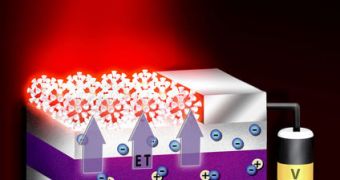Physicists have been working towards creating the basis for quantum computers for a very long time, yet technological and theoretical limitations have plagued progress all along. Now, new data is allowing scientists to at least picture what these devices will look like in the future.
Everyone knows that practical applications of quantum computers remain years, even decades, away, but knowing what to aim for is solving half the problem. Once you know your destination, you can start figuring out how to get there.
Quantum computers seek to harness the power of two processes, called superposition and entanglement. Both of them are basic tenets of quantum mechanics, the theory that tries to explain the interactions and behavioral patterns of subatomic particles.
Superposition is a phenomenon in which a particle can exist in more than one state at the same time. Translated into quantum bits (qubits), this means that a computer may process data using “1s,” “0s” and “1s and 0s.” In practical terms, this would lead to massive improvements in processing power.
Such a computer – the size of a mere building – would be able to break the most secure codes used today in just 16 hours, while requiring the energy of existing supercomputers. With existing technologies, North America would have to be covered in supercomputers to do the same.
Additionally, those machines would require the Earth's total electricity output each day, and will require about 10 years to compile the calculations. Now that's an improvement worth fighting for, experts say.
“We've taken a problem that I used to think was an insanely difficult problem and we've turned it into something that I now think is merely very, very hard,” University of California in Santa Barbara (UCSB) physicist John Martinis explains.
He made a presentation on the topic on February 18, at the annual meeting of the American Association for the Advancement of Science (AAAS 2012) in Vancouver, British Columbia, Canada, Innovation News Daily reports.
According to California Institute of Technology (Caltech) physicist John Preskill, such an advancement could also contribute to developing new molecular tailoring techniques for medical applications, as well as innovative materials for a host of other applications.
“We don't currently envision you'll be sending your email and processing on a quantum computer. On the other hand, quantum games might be a blast. It could affect lives in ways we haven't anticipated,” Preskill concludes.

 14 DAY TRIAL //
14 DAY TRIAL //